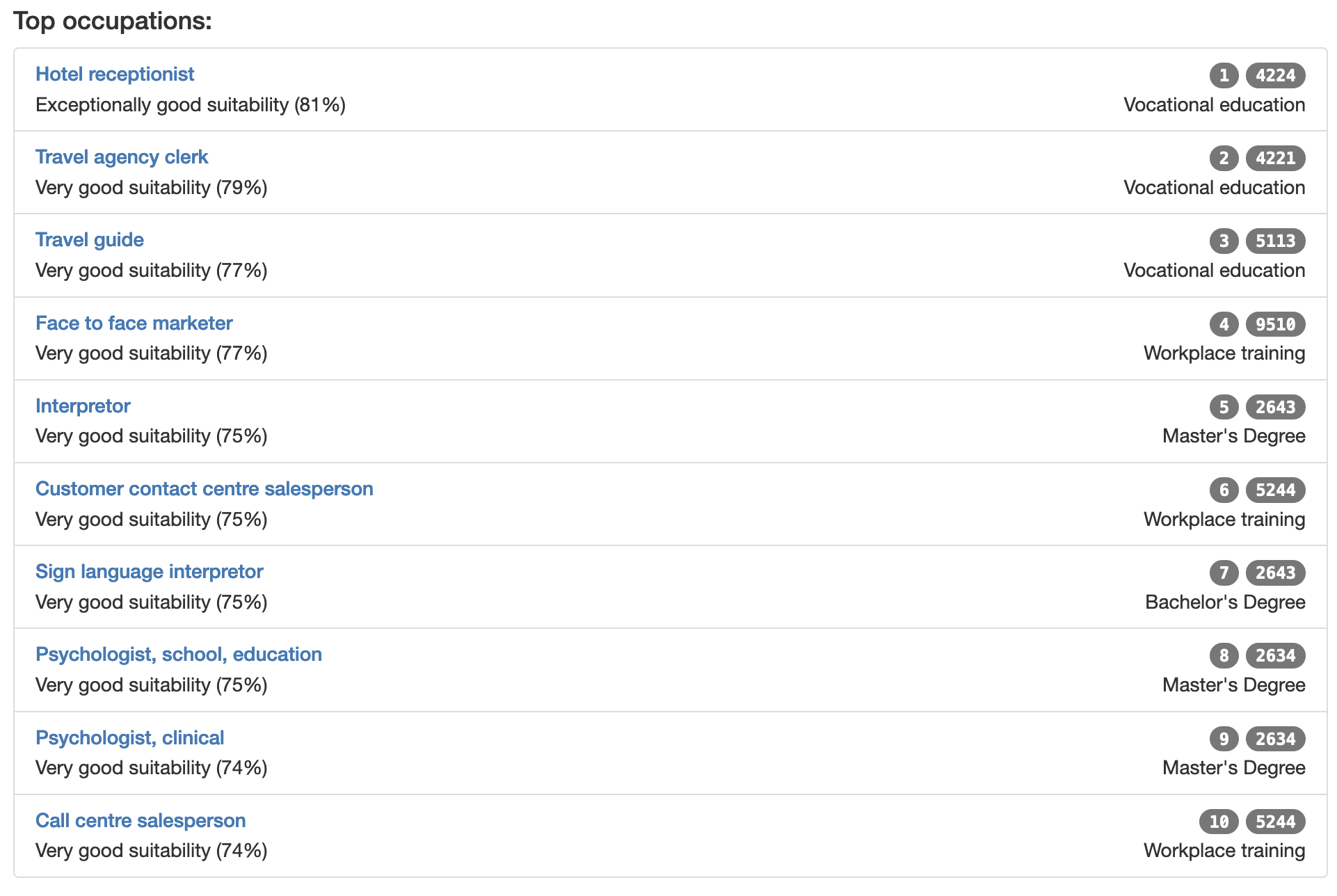Työtehtävät
There are over 350 occupations defined according to the ISCO criteria on seven training levels in the Mindfindr service.
The International Standard Classification of Occupations
The International Standard Classification of Occupations (ISCO) is a vital tool that provides a systematic framework for categorizing and understanding occupations worldwide. Developed and maintained by the International Labour Organization (ILO), ISCO helps in harmonizing occupational data and promoting international comparability across various labor market and economic analyses. ISCO classifies occupations into a hierarchical structure comprising four levels:
Major Groups: At the broadest level, ISCO divides occupations into major groups, based on the nature of work and skills required. These groups range from managerial and professional roles to service and sales occupations.
Sub-Major Groups: Major groups are further subdivided into sub-major groups, providing more detailed classifications within each broad category. This level refines the distinctions between different types of occupations.
Minor Groups: Sub-major groups are then broken down into minor groups, offering even more specific classifications. Occupations within minor groups share similar job tasks and skill requirements, allowing for detailed analysis.
Unit Groups: The most detailed level, unit groups, consist of different occupational categories. Each unit group represents a specific occupation with unique tasks and skill sets.
Result Differences
The content of the professional list in Mindfindr online service differs from the online report provided to participants (PDF-report). The online service offers a more extensive array of options, including additional parameters and choices.
Mindfindr with a sample size of 17,000 (N = 17000), has the capability to generate a statistical distribution specific to occupations for either a defined group of participants or the entire sample. Conversely, the Mindfindr service can generate individual results for each participant across all occupations.

Interpretation
In the interpretation of occupation list assessment, there may be confusion about how the same profile can be suitable for a highly trained sales expert and an untrained street vendor.
The Mindfindr does not gather information regarding participants’ backgrounds; it solely focuses on their psychological profiles. Within Mindfindr, these profiles are assessed purely from a psychological standpoint, independent of the participants’ training, skills or experience. However, numerous professions mandate specific education and experience, distinct from personality traits. Therefore, in the participant’s results and reports, the professional list is organized based on their level of education.
Mindfindr directly assesses a participant’s suitability for various professions by analyzing their profile, derived from the answers provided in a set of questions. When assessing the entirety of the situation, it’s crucial to evaluate the relevance within the broader framework provided by the Mindfindr.
Individuals can often excel in roles that contradict their personal traits. Competence, expertise, and experience can mitigate the impact of psychological characteristics. However, when job tasks starkly clash with personal traits, individuals may face additional mental strain. For instance, an extroverted individual working as an accountant or an introverted person engaging in socially demanding roles may experience heightened stress or even burnout due to this mismatch.